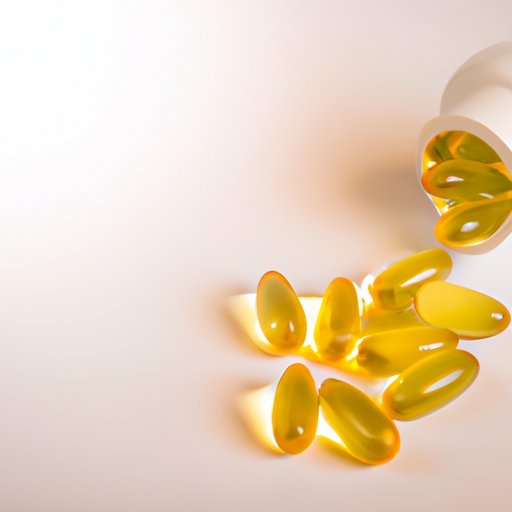
I. Introduction
Vitamin D is an important nutrient that plays a vital role in various bodily functions, such as maintaining strong bones and immune system function. However, many people do not get enough vitamin D from natural sources or exposure to sunlight, leading to deficiencies and health issues. In this article, we will explore the natural and supplemental sources of vitamin D and how to maintain healthy vitamin D levels for optimal health.
II. 7 Natural Sources of Vitamin D – Get Your Daily Dose of Sunshine Without Leaving Your Home
Sunlight exposure is the best natural source of vitamin D, but there are other ways to get your daily dose of vitamin D naturally. Some of the natural sources of vitamin D include mushrooms, oily fish such as salmon and sardines, cod liver oil, and eggs. Here are some recipe ideas that can incorporate these natural sources of vitamin D into your daily diet:
- Mushroom and spinach frittata
- Broiled salmon with garlic and lemon
- Mushroom and barley soup
- Fish tacos with pickled onions and avocado dressing
III. The Importance of Vitamin D – Discover 5 Foods That Are Rich in Vitamin D
Vitamin D is essential for overall health, and is responsible for numerous functions such as regulating calcium and promoting bone health, maintaining heart health, and supporting immune system function. Here are some dietary sources of vitamin D to help you maintain healthy vitamin D levels:
- Fatty fish, such as salmon and mackerel
- Egg yolks
- Fortified dairy products, such as milk and yogurt
- Cod liver oil
- Mushrooms
Adding these vitamin D-rich foods to your diet can help you boost your overall health and ensure that you are getting the necessary nutrients for optimal well-being.
IV. The Benefits of Vitamin D – From Strong Bones to Boosting Your Immune System
Vitamin D has numerous benefits for your overall health and well-being. Some of these include:
- Promoting healthy bones and preventing osteoporosis
- Supporting immune system function and reducing the risk of infections
- Reducing the risk of heart disease and diabetes
- Improving mood and reducing the risk of depression
Research has shown that vitamin D supplementation can lead to improved health outcomes and a reduction in chronic diseases.

V. Top 3 Supplements for Getting the Right Amount of Vitamin D
While natural sources of vitamin D can be helpful, some people may need to supplement their vitamin D intake to achieve optimal health. Here are some of the top vitamin D supplements:
- Vitamin D3 supplements
- Cod liver oil supplements
- Multivitamins with vitamin D
It is essential to consult with a healthcare provider before starting any vitamin D supplement regimen to ensure safe and effective use.
VI. Vitamin D and Sun Exposure – How Long Should You Spend in the Sun for Optimal Health
Sunlight exposure is the most effective way for the body to produce vitamin D, but it is essential to maintain proper safety guidelines to avoid skin damage. Here are some tips for safe sun exposure:
- Expose your skin to sunlight for 10-15 minutes a day, or longer for people with darker skin
- Avoid peak UV exposure times, such as 10am-4pm
- Protect skin with sunscreen with at least SPF 30, a hat, and clothing
VII. Vitamin D Deficiency – Discover the Symptoms and Health Risks Associated with Lack of Sun Exposure
Vitamin D deficiency is common and can lead to serious health issues if left untreated. Some of the symptoms of vitamin D deficiency include:
- Fatigue and weakness
- Bone pain and muscle weakness
- Increased risk of infections and illnesses
- Depression and mood changes
People who are at higher risk of vitamin D deficiency include those with dark skin, those who are obese, and those who rarely get sunlight exposure. It is essential to consult with a healthcare provider if you suspect you have a vitamin D deficiency.
VIII. Conclusion
Vitamin D is an essential nutrient for overall health and well-being, and it is essential to ensure that you are getting enough vitamin D from natural sources or supplements. Incorporating vitamin D-rich foods into your diet, getting safe sunlight exposure, and taking vitamin D supplements can help you maintain healthy vitamin D levels and improve your overall health.





